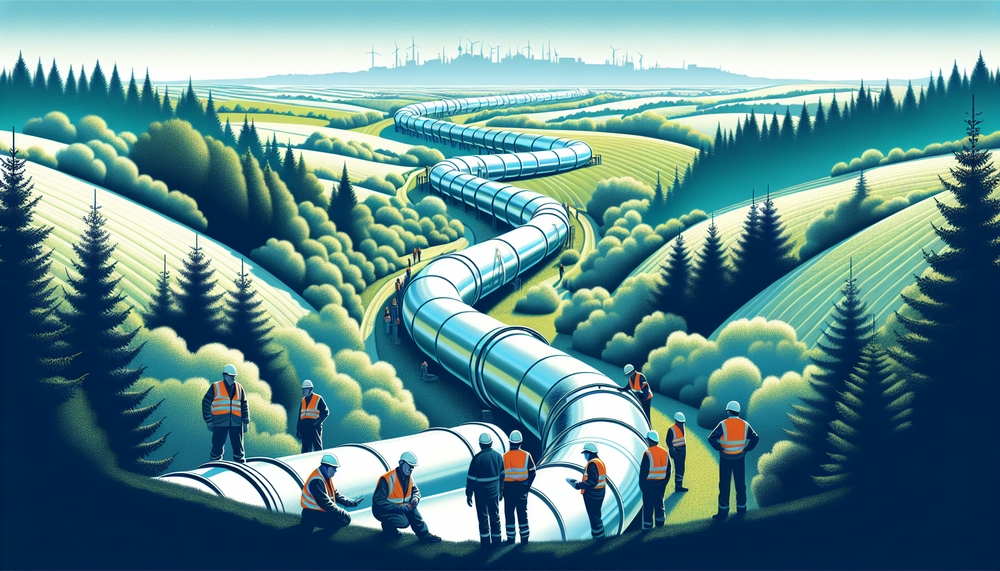Published
- 3 min read
Why Nord Stream 2 is a Misstep for European Unity

Introduction: The Revival of Nord Stream 2
As global tensions remain high, particularly in the realm of energy politics, the provocative Nord Stream 2 pipeline is once again at the center of European geopolitical discourse. Discussions about its potential reopening have ignited debates across diplomatic sectors, with significant weight given to its implications for European unity. Set against a backdrop of a prolonged and unresolved Russia-Ukraine conflict, this offshore natural gas pipeline serving German and European markets has become a focal point of contention between U.S. and European interests.
The Case Against Nord Stream 2
Critics of Nord Stream 2 argue that its activation poses a risk to the delicate economic equilibrium within the European Union. By increasing Germany’s dependency on Russian gas, the pipeline potentially grants Germany an economic advantage over its fellow EU members, leading to an uneven economic landscape. More critically, this reliance on Russian energy resources detracts from efforts towards collective European initiatives aimed at reducing dependency on geopolitically volatile regions. The pipeline’s operation might strengthen Germany’s hand but threatens to fracture collective European integrity.
The Economic and Military Consequences
The financial implications of Nord Stream 2 are significant, not least because they could inadvertently fuel Russia’s military endeavors. Nord Stream 2, by enabling a near $5 billion annual cash flow to Russia, provides Moscow with economic resources that could bolster military aggression, particularly towards Ukraine. This prospective financial empowerment of Russia via pipeline revenues intensifies concerns over exacerbating existing geopolitical tensions, leaving Europe in a precarious position as it grapples with the dilemmas of security and economy.
Energy Dependency as a Geopolitical Tool
The strategic manipulation of energy resources is a well-worn tactic in geopolitical maneuvers, particularly by Russia. Should Nord Stream 2 be revived, it risks facilitating the Kremlin’s use of energy supplies as a lever against European cohesion. Past instances have demonstrated how Russian gas supplies have been weaponized to exert influence, and Nord Stream 2 poses the danger of bypassing key Central European transit countries, thereby enhancing Russia’s divide-and-conquer strategy. Such tactics only deepen divisions within Europe, making unity more tenuous.
Lessons from the Past: The Cost of Dependence
Historically, Europe’s reliance on Russian gas has proven costly during periods of heightened conflict. Past disruptions have illustrated the vulnerabilities tied to such dependence, often resulting in severe economic setbacks and political turmoil shared across the EU. These experiences highlight the necessity for Europe to pursue smarter energy policies, pivoting towards sustainable and independently managed resources to break free from historical dependencies.
The Path Forward: Alternatives to Nord Stream 2
Europe must seek viable alternatives that promote energy security and economic stability, eschewing the risky path of Nord Stream 2. Diversifying energy sources and heavily investing in renewable technologies stand as crucial steps in ensuring the continent’s resilience. By doing so, Europe can reduce its reliance on regions prone to geopolitical instability, thereby laying the groundwork for sustainable economic health and political unity.
Conclusion: The Price of European Unity
In conclusion, the geopolitical, economic, and security risks associated with the reopening of Nord Stream 2 are profound. Recalling past lessons from energy dependencies can guide Europe towards a more unified and stable future. By prioritizing long-term stability and security through strategic diversification and the pursuit of renewables, the continent can fortify its unity and safeguard its geopolitical interests against the allure of short-term economic engagements.
